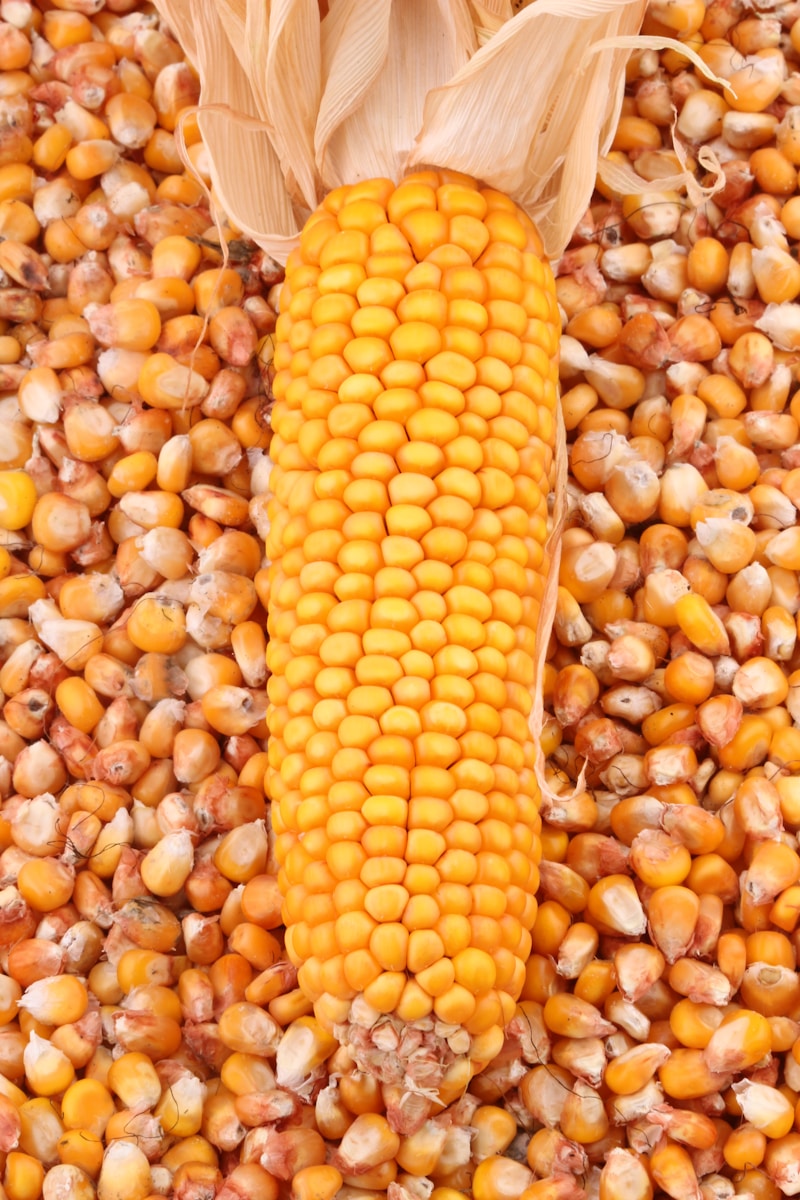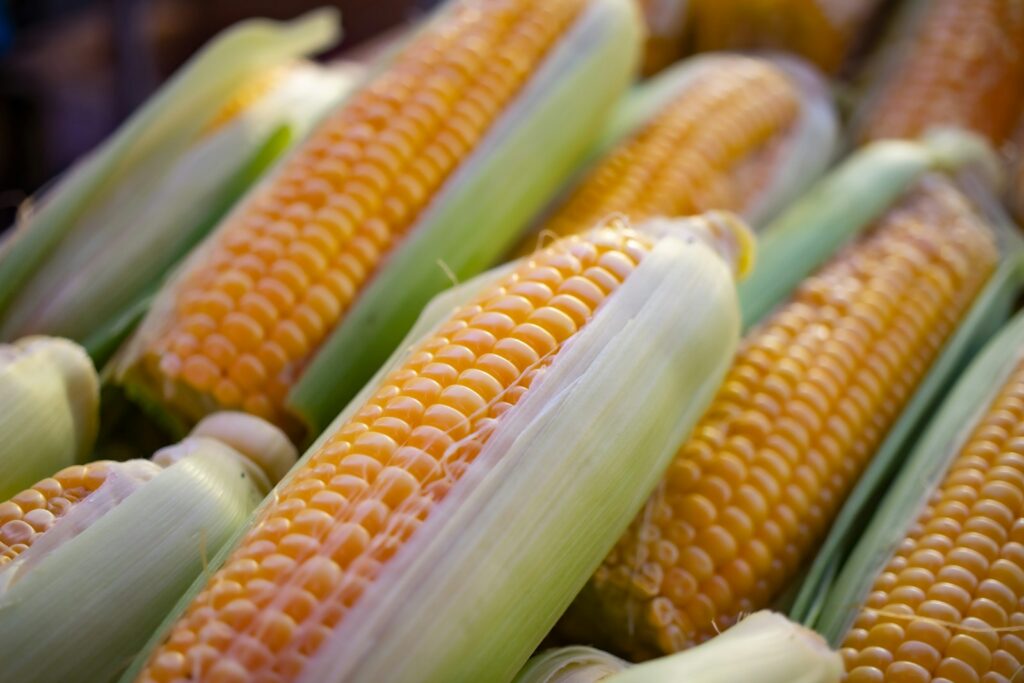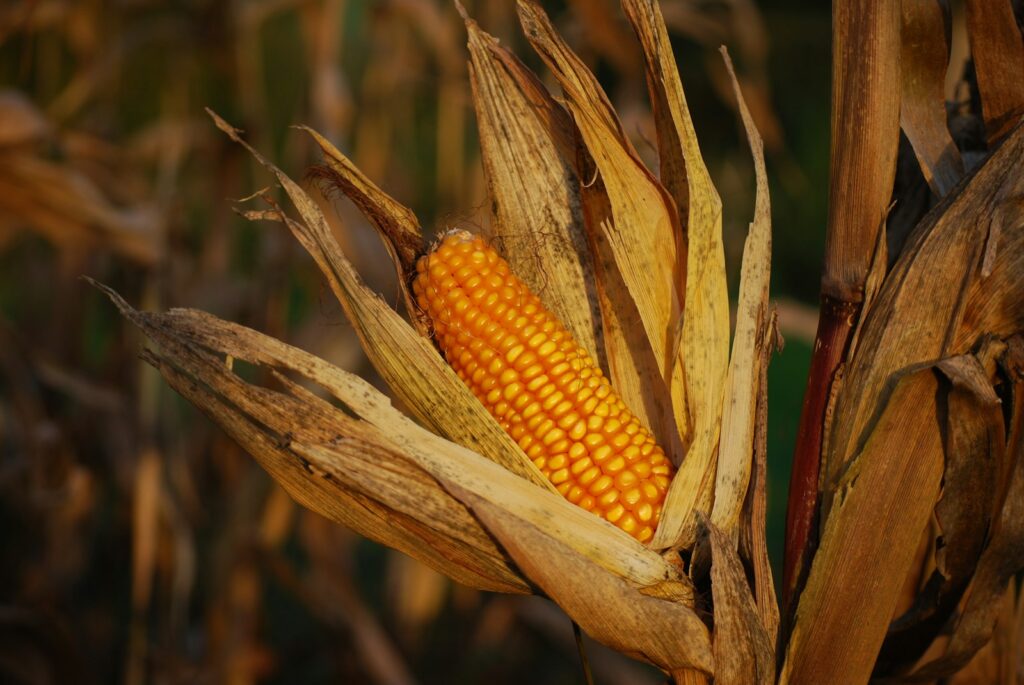
Contract Framing
Royal Agro Group was formed in the year 1986 with vision to become leading exporter of agro products. We have been dealing in Bulk Trading, FMCG Products, Bio Energy, Managing Container Freight Station (CFS) and Central Warehousing Corporation (CWC). Our founder Hon’ble Mr. Kashinath Jadhav gave new dimension to our organization by introducing a Contract Farming by engaging with Farmer Producing Organizations (FPOs).
• We have registered Agreement with Large pool FPOs/PACS with land holding 5,60,000 Acers for Maize Cultivation it supports More than 3,50,000 Farmers who are basically small and marginal farmers. It will fulfill the demand of Approximately 20, 00,000 MT. form one
(3 cycles Annually)
Contract Farming focusing on Maize Cultivation Our Maize Value Chain

• We have institutionalized Large pool FPOs/PACS in line with Government of India’s vision to lead Community Farming and collectivised effort to make agriculture Atma-Nirbhar.
• We will provide all inputs including High Yield Seeds, Fertilizers, procured form Germany and Netherland, Imported Pesticides Including comprehensive insurance coverage. We will also provide Advanced Water And Soli Testing Facility.
• Monitoring by Farmers Technical Groups at local levels. It includes Advanced Surveillance through Satellite Farming Technologies, Integrated Real time Farming Solution App.
• Cultivation Period is 90 to 110 Days. M/s. Royal Agro Group, will provide ‘Harvest Package’ to aid farmers.
• Forward Linkage includes Storage Spaces at CWC & MSW Warehouses. We have exclusive agreements with such authorities. We will also facilitate digital warehousing receipts.
• Our worldwide presence and domestic market penetration will ensure assured demand for the end product.
• Livelihood support to 3,50,000 Farmers with institutional arrangements.
• Assured Market & Agreed Price, Quantity will make farmers risk free.
• Employment support and skills enhancement to 5,000 employees under NEEM SCHEME. It assures productive employment to rural youth, retaining talent in rural areas.
• Comprehensive farming skill upgradation package which includes Soil Water Management, Advance Monitiring & Harvest Techniques, eNAM Training.
• Preventing Virtual Water Trade and reversing desertification trend in vulnerable areas.
• Priority to rainfed areas and facilitating farmers to shift from Rice-Wheat-Sugarcane System to Maize Cultivation System ensuring Environment Sustainability.
Policy Support Needed
Financial Assistance.
Income Tax Exemptions.
Support through NABARD refinancing facility.
Electronic National Warehousing Receipts (e-NWR) support

Integrated Farming :
Integrated farming, also known as integrated agriculture, is an agricultural approach that aims to achieve sustainable and environmentally friendly production by combining different agricultural activities (like crop production, livestock rearing, aquaculture, and agroforestry) in a way that the waste or byproduct of one component serves as a resource for another. This approach helps optimize the use of resources, reduces
dependency on external inputs such as chemical fertilizers and pesticides, enhances biodiversity, and promotes recycling within the farm system.

Benefits of Integrated Farming:
•Environmental Sustainability: Reduces chemical input usage, enhances
biodiversity, and promotes ecological balance.
•Economic Efficiency: Lowers input costs, increases productivity through
diversified farming activities, and provides multiple streams of income.
•Improved Soil Health: Enhances soil fertility and structure, reducing erosion and
improving water retention.
•Resilience to Climate Variability: Diversified farming systems are more resilient to
adverse weather conditions, pests, and diseases.
Integrated farming represents a holistic approach to agriculture that not only
improves farm productivity and profitability but also contributes significantly to
sustainable agricultural and environmental goals.
